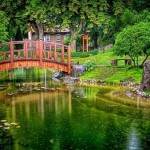 Ten thousand hours. That’s how much time you must invest before you can master a new skill, as some experts claim. To build your Knowledge Bank, you must master the third part of the trilogy, application, which follows discipline and assimilation.
Ten thousand hours. That’s how much time you must invest before you can master a new skill, as some experts claim. To build your Knowledge Bank, you must master the third part of the trilogy, application, which follows discipline and assimilation.
When you apply what you have learned, you practice or “try on” your new knowledge before you master it. How does it fit into your work and your life? For example, if you have learned a new method to better facilitate meetings, then begin using it in your next meeting. Adjust it where needed. As you use this new knowledge, ask questions like, “How else could I use this knowledge?” or “Is there some other way I can apply it?”
Author Napoleon Hill wrote the classic book, Think and Grow Rich in 1937, outlining 13 principles for leading a successful life. The fourth in the list is specialized knowledge. When I first read this book in the 1980s as a young professional, I was impressed with how simple Hill’s writing was. I remember him speaking of the importance of applying what you learn. With application comes knowledge. All these years later, Hill’s advice is still fresh and meaningful to me.
Consider the beauty and tranquility of a Japanese garden. The gardener must learn various techniques for carefully pruning shrubs and trees, meticulously sweeping leaves, and raking gravel to create traditional patterns. It takes months and years of practice to become master gardener of a Japanese garden.
What is different about the Knowledge Bank that I have covered in these past three posts is that it belongs to you, and you can build your bank so that it provides riches to you and to others. When you invest your knowledge in others, it pays dividends in their lives and in yours. You will feel good knowing that you played an important role in helping others learn and grow.
How much do you have invested in your Knowledge Bank?
How are you sharing your knowledge wealth with others?
